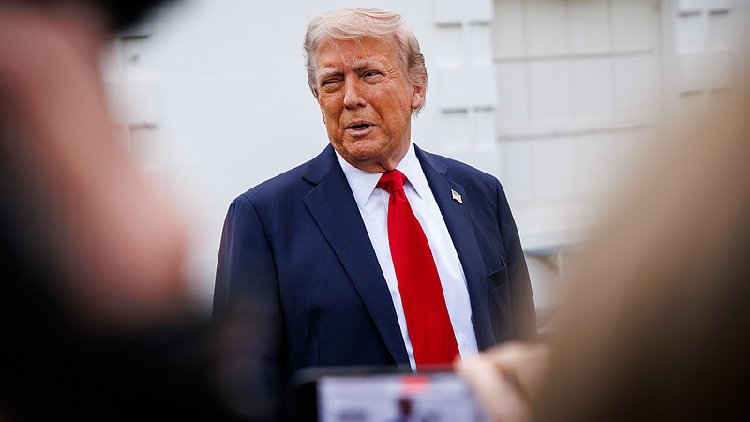Twelve American States File Lawsuit Against Trump Administration Over 'Illegal Tariffs'
A group of attorneys general from Arizona, Colorado, Connecticut, Delaware, Illinois, Maine, Minnesota, Nevada, New Mexico, New York, Oregon, and Vermont initiated a lawsuit on Wednesday, aiming to secure a court order that would prevent the Trump administration from implementing the tariffs.

Attorneys general from Arizona, Colorado, Connecticut, Delaware, Illinois, Maine, Minnesota, Nevada, New Mexico, New York, Oregon, and Vermont initiated the legal action to seek a court order that would prevent the Trump administration from implementing the tariffs.
This lawsuit follows California's recent action, where it became the first state to challenge the Trump administration regarding these tariffs.
The lawsuit claims the administration's policy has rendered national trade policy susceptible to Trump's "whims rather than the sound exercise of lawful authority." It calls for the court to declare the tariffs illegal and to stop government agencies and officials from enforcing them.
The legal documents emphasize that the U.S. president is permitted to invoke the emergency act only when facing an "unusual and extraordinary threat" from abroad.
"By claiming the authority to impose immense and ever-changing tariffs on whatever goods entering the United States he chooses, for whatever reason he finds convenient to declare an emergency, the President has upended the constitutional order and brought chaos to the American economy," the lawsuit argues.
According to New York Attorney General Letitia James' office, "Congress has not granted the president the authority to impose these tariffs and therefore the administration violated the law by imposing them through executive orders, social media posts, and agency orders."
James further stated, "His tariffs are unlawful and if not stopped, they will lead to more inflation, unemployment, and economic damage."
New York Governor Kathy Hochul commented, "President Trump's reckless tariffs have skyrocketed costs for consumers and unleashed economic chaos across the country."
In response, White House spokesperson Kush Desai remarked that the administration "remains committed to addressing this national emergency that's decimating America's industries and leaving our workers behind with every tool at our disposal, from tariffs to negotiations."
On April 2, Trump signed an executive order at the White House invoking the International Emergency Economic Powers Act to declare a national emergency and impose so-called "reciprocal tariffs" on all U.S. trading partners.
This action sparked significant opposition both internationally and domestically, resulting in considerable turmoil in the financial markets.
Anna Muller for TROIB News
Find more stories on Business, Economy and Finance in TROIB business












